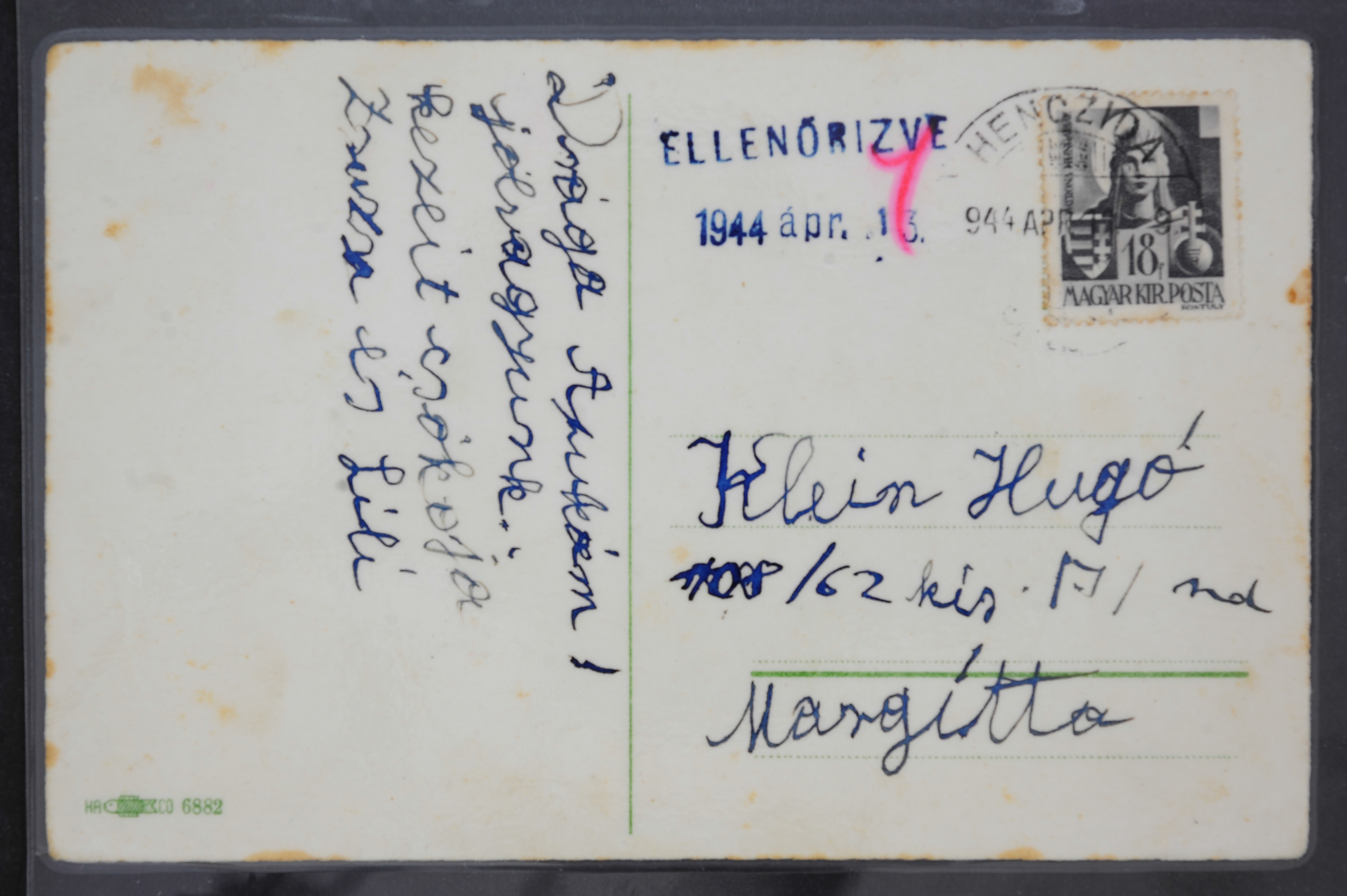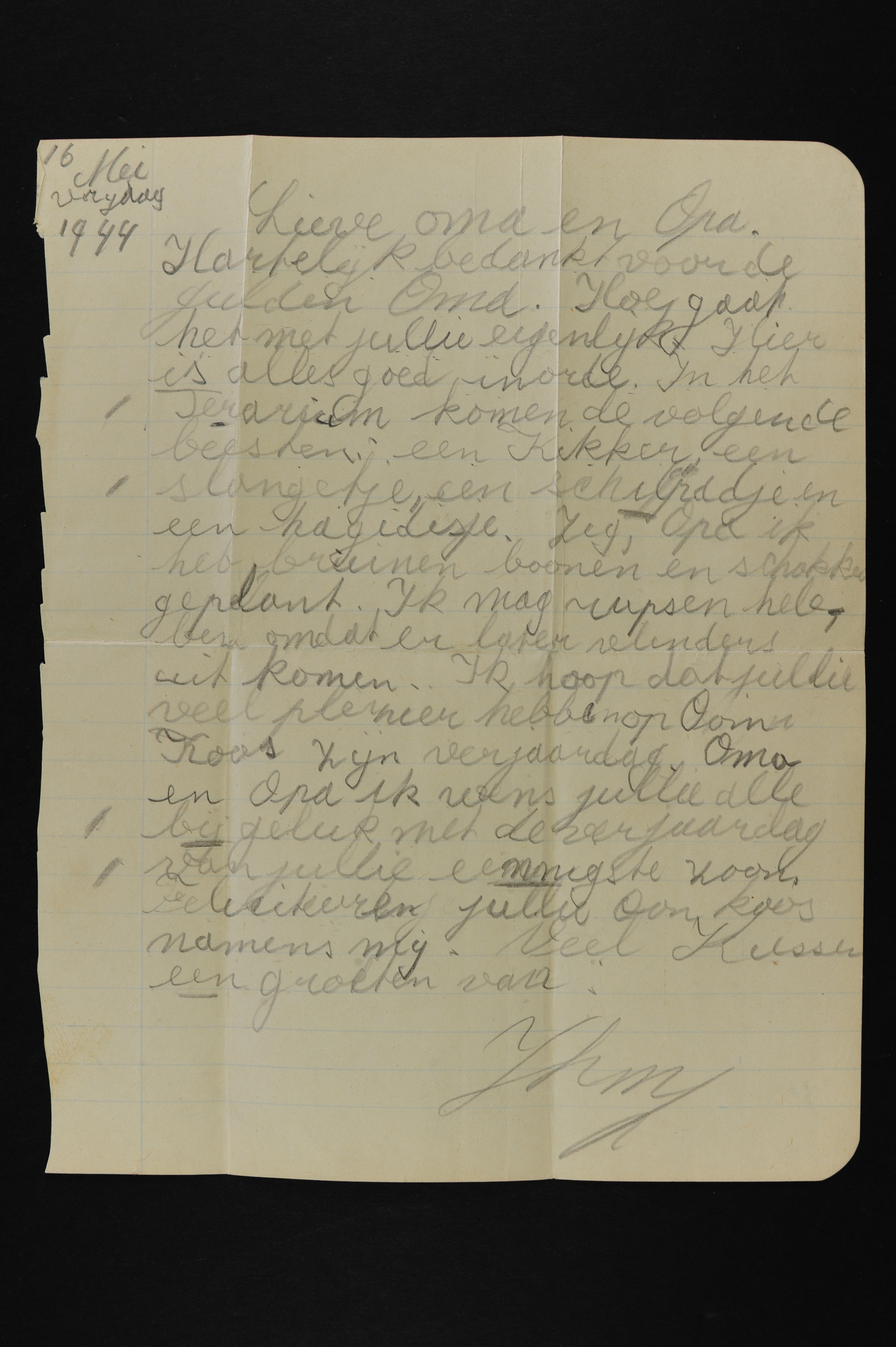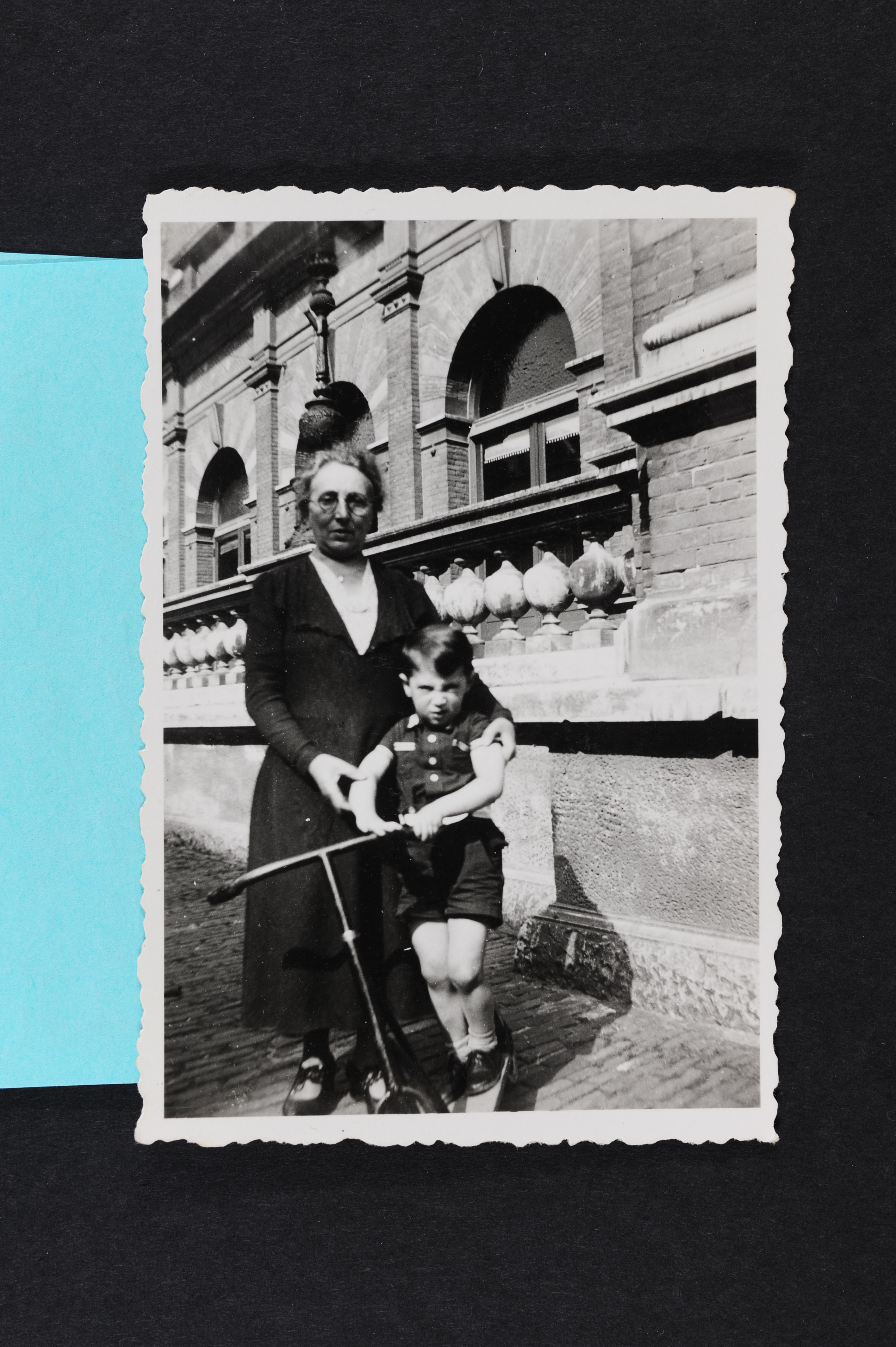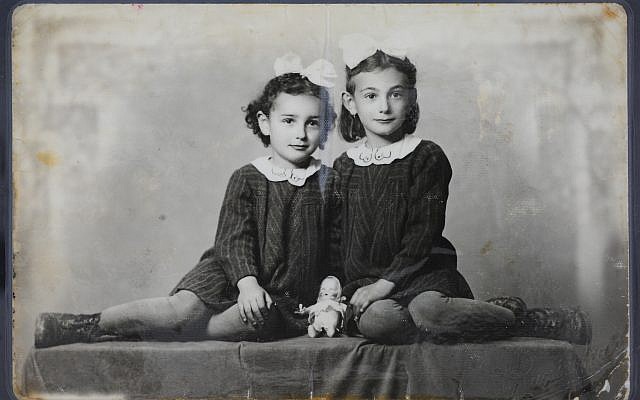Yad Vashem displays last letters from Shoah victims to loved-ones in 1944
The letters were sent 75 years ago from ghettos, camps, homes, and some were thrown from deportation trains by their authors
A dozen of last letters from Shoah victims to their loved-ones before they perished are to be published online to mark Holocaust Martyrs and Heroes Remembrance Day
The letters were sent 75 years ago from ghettos, camps, homes, and some were thrown from deportation trains by their authors.
Many of the items in the online exhibition, titled “Last Letters from the Holocaust: 1944,” were donated to Yad Vashem after an appeal for memorabilia from the period of the Holocaust.
Among the letters, sisters Susan-Zsuzsa, 9, and Lili Klein, 7, wrote their father Hugo a short letter: “Dear Daddy, We are well – goodbye.”

Hugo was drafted into a forced labor battalion in 1943, leaving his wife Matild behind with their two daughters in Hencida in Hungary.
Hugo survived the war, but Matild, Susan-Zsuzsa and Lili were deported to Auschwitz and were murdered shortly after their arrival.
“At the same time that Paris and Rome in the West and Vilna and Minsk in the East were being liberated from Nazi hands, we see in many of the last letters a glimmer of hope by the writers to be reunited with their loved ones,” says Yad Vashem’s online exhibitions coordinator Yona Kobo.
“They were written 75 years ago on small pieces of paper or the back of postcards, which sometimes are stained with the tears of both the sender and the recipients.”
Another letter in the exhibition was sent by 10-year-old Jacob Hijman Marcus to his grandparents from Amsterdam while in hiding with his aunt Rosa.
“Dear Grandma and Grandpa how are you doing? Here, everything is going well… I send you all good wishes on the occasion of the birthday of your only son. Please congratulate him for me,” it reads.

Only three weeks later, Marcus and Rosa were deported to the Terezin ghetto.
Shortly after, Jacob’s name appeared on a transportation list to Auschwitz. His aunt, who was not on the list, switched her name with another person so she could accompany him.
They were deported to Auschwitz, where Jacob was murdered upon arrival in the gas chambers of Auschwitz, while Rosa survived until the liberation of the camp.
Two months later, Rosa died of food poisoning after buying and eating what she was told was kosher food.
Jacob’s parents, grandfather and grandmother survived the war.
“The Germans Nazis were determined not only to annihilate the Jewish people, but also to obliterate their identity, memory, culture and heritage,” said Yad Vashem Chairman Avner Shalev.
“By preserving these precious items – that are of great importance not just to the Jewish people, but also to humanity as a whole – and revealing them to the public, they will act as the voice of the victims and the survivors, and serve as an everlasting memory.”
- To view the exhibition, visit yadvashem.org/yv/en/exhibitions/last-letters/1944/index.asp


Thank you for helping to make Jewish News the leading source of news and opinion for the UK Jewish community. Today we're asking for your invaluable help to continue putting our community first in everything we do.
For as little as £5 a month you can help sustain the vital work we do in celebrating and standing up for Jewish life in Britain.
Jewish News holds our community together and keeps us connected. Like a synagogue, it’s where people turn to feel part of something bigger. It also proudly shows the rest of Britain the vibrancy and rich culture of modern Jewish life.
You can make a quick and easy one-off or monthly contribution of £5, £10, £20 or any other sum you’re comfortable with.
100% of your donation will help us continue celebrating our community, in all its dynamic diversity...
Engaging
Being a community platform means so much more than producing a newspaper and website. One of our proudest roles is media partnering with our invaluable charities to amplify the outstanding work they do to help us all.
Celebrating
There’s no shortage of oys in the world but Jewish News takes every opportunity to celebrate the joys too, through projects like Night of Heroes, 40 Under 40 and other compelling countdowns that make the community kvell with pride.
Pioneering
In the first collaboration between media outlets from different faiths, Jewish News worked with British Muslim TV and Church Times to produce a list of young activists leading the way on interfaith understanding.
Campaigning
Royal Mail issued a stamp honouring Holocaust hero Sir Nicholas Winton after a Jewish News campaign attracted more than 100,000 backers. Jewish Newsalso produces special editions of the paper highlighting pressing issues including mental health and Holocaust remembrance.
Easy access
In an age when news is readily accessible, Jewish News provides high-quality content free online and offline, removing any financial barriers to connecting people.
Voice of our community to wider society
The Jewish News team regularly appears on TV, radio and on the pages of the national press to comment on stories about the Jewish community. Easy access to the paper on the streets of London also means Jewish News provides an invaluable window into the community for the country at large.
We hope you agree all this is worth preserving.






















